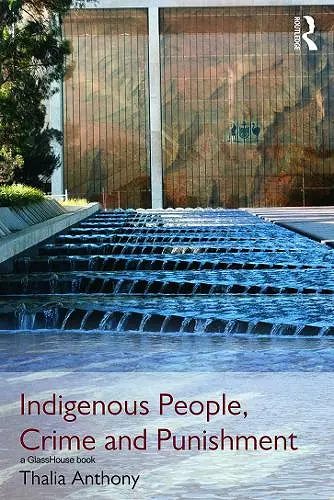Indigenous People, Crime and Punishment
Format:Hardback
Publisher:Taylor & Francis Ltd
Published:1st Jul '13
Currently unavailable, and unfortunately no date known when it will be back
This hardback is available in another edition too:
- Paperback£45.99(9780415831598)

Indigenous People, Crime and Punishment examines criminal sentencing courts’ changing characterisations of Indigenous peoples’ identity, culture and postcolonial status. Focusing largely on Australian Indigenous peoples, but drawing also on the Canadian experiences, Thalia Anthony critically analyses how the judiciary have interpreted Indigenous difference. Through an analysis of Indigenous sentencing remarks over a fifty year period in a number of jurisdictions, the book demonstrates how judicial discretion is moulded to dominant white assumptions about Indigeneity. More specifically, Indigenous People, Crime and Punishment shows how the increasing demonisation of Indigenous criminality and culture in sentencing has turned earlier ‘gains’ in the legal recognition of Indigenous peoples on their head. The recognition of Indigenous difference is thereby revealed as a pliable concept that is just as likely to remove concessions as it is to grant them. Indigenous People, Crime and Punishment suggests that Indigenous justice requires a two-way recognition process where Indigenous people and legal systems are afforded greater control in sentencing, dispute resolution and Indigenous healing.
Overall, Indigenous People, Crime and Punishment is an engaging multidisciplinary text. By weaving together a substantive body of law with criminological understanding, Anthony anchors the role of recognition in the sentencing process in a broader social and historical context. Illustrated by recent and relevant cases, legislative reforms and policy changes, each chapter builds logically on the next to culminate in a persuasive argument to the flawed and contradictory process of recognition in sentencing. The narrowed focus of the text, predominantly considering a single theory in a single state jurisdiction, allows it to achieve a depth of analysis not possible for other more general works in this field.
Emily Bill, University of Tasmania, for HeinOnline (2014)
ISBN: 9780415668446
Dimensions: unknown
Weight: 660g
248 pages